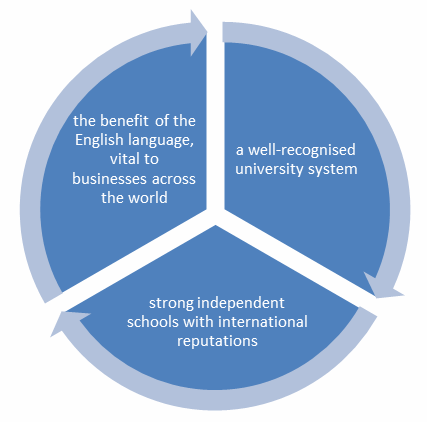"An English education is admired the world over but for it to continue to be successful, challenges must be overcome and opportunities embraced", said Simon Lebus, Group Chief Executive of Cambridge Assessment, who was speaking an event at this year’s UK Conservative Party conference.
Cambridge Assessment hosted a roundtable meeting ‘Expanding our horizons: how we take the benefits of an English education global’ together with the think tank Reform and the Association of Colleges (AoC).
Mr Lebus said the UK’s education system had much to recommend it, and Britain was a world leader in teaching and examining English, for example. It also promotes an "entrepreneurial individualism", strong skill sets and a valuable social experience. But he said opportunities needed to be embraced, such as the growth in online learning through Massive Open Online Courses (MOOCs).
Skills Minister Matthew Hancock told the event that "the Government recognised that the UK’s strengths in education were numerous". He said that sometimes, however, the Government had been guilty of focusing on a UK education rather than a global one, something he said was now being addressed.
Also speaking at the event was President of the AoC and Principal and Chief Executive of Bradford College, Michele Sutton OBE, who said that "a more international student body enabled British students to better understand the global economy". She said this could help support exchange opportunities between UK students and the rest of the world.
So what are the benefits of an English education?
According to the event, the UK has a huge educational outreach across the world and a powerful cultural and economic impact driven by:

But how can we ensure that such an education supports local and national values?
Having ‘exported’ high quality academic and English Language qualifications for the last 130 years, at Cambridge Assessment we take seriously our responsibility to help develop solutions appropriate for each country. For example:
- In Singapore, Cambridge examinations (jointly awarded with the Singapore Examinations Board) are the state qualification for students in secondary school.
- In other parts of the world such as Botswana, Namibia and Swaziland, Cambridge International Examinations support the development of those countries’ own national syllabuses and assessment systems.
- We also work with countries and school systems on assessment, teacher professional development, leadership, school evaluation and inspection and research.
Related materials